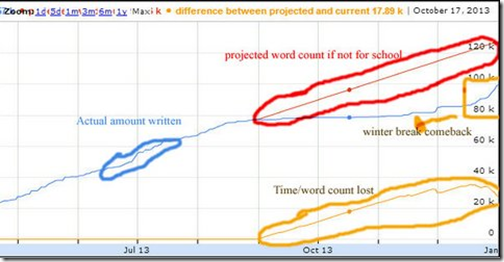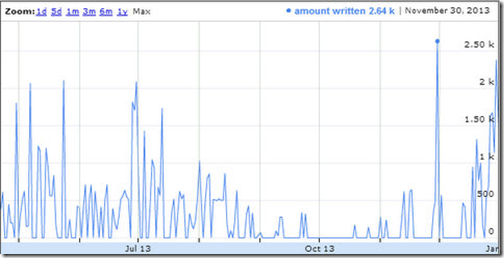The kid has a data driven writing process
/Last year I spoke at a local library about by books and writing. Sitting front and center in the first row was a young man who wants to be a writer. He was on the edge of his seat, ready to absorb all that I had to say. He listened intently, asked lots of questions and at the end of his talk, he introduced himself to me.
His name is Caleb.
Since that day, Caleb has sent me some of his work from time to time, and when I have the chance, I will read it and send him back some feedback. He’s young, but he’s already showing the signs of a promising writing career.
He has chops.
Almost as important, he’s polite. He’s social adept. He understands that a teacher/author/wedding DJ/father/husband/minister/storyteller gets busy and sometimes can’t read everything.
I can’ tell you how many adult writers do not understand this.
Recently he sent me a series of graphs that display his writing production. On the right side of the first graph is his projected word count, and along the bottom of the graph is the timespan that he has been recording data.
He has labeled the three colors on the graph so you can see each color represents.
The writer in me loves his “projected word count if not for school.”
The teacher in me is less enamored with it.
I also love the “winter break comeback” label. As a writer and a teacher, I understand a winter break comeback very well. I often live and die by the winter break comeback.
This second graph shows the daily word production.
I’m not sure if Caleb is going to become a bestselling author someday, but I know that he is committed to the craft. I also know that he is taking an approach to writing that I don’t see often amongst writers:
The kid is being honest with himself. The kid is being opaque about his productivity. The kid is using data and accountability to drive his word count.
Absent a boss or supervisor, he is using data and graphs to meet his goals.
It doesn’t mean his writing is great, but in my experience, the more you write, the better you get.
Caleb has chops, and he’s only getting better, one data point at a time.

